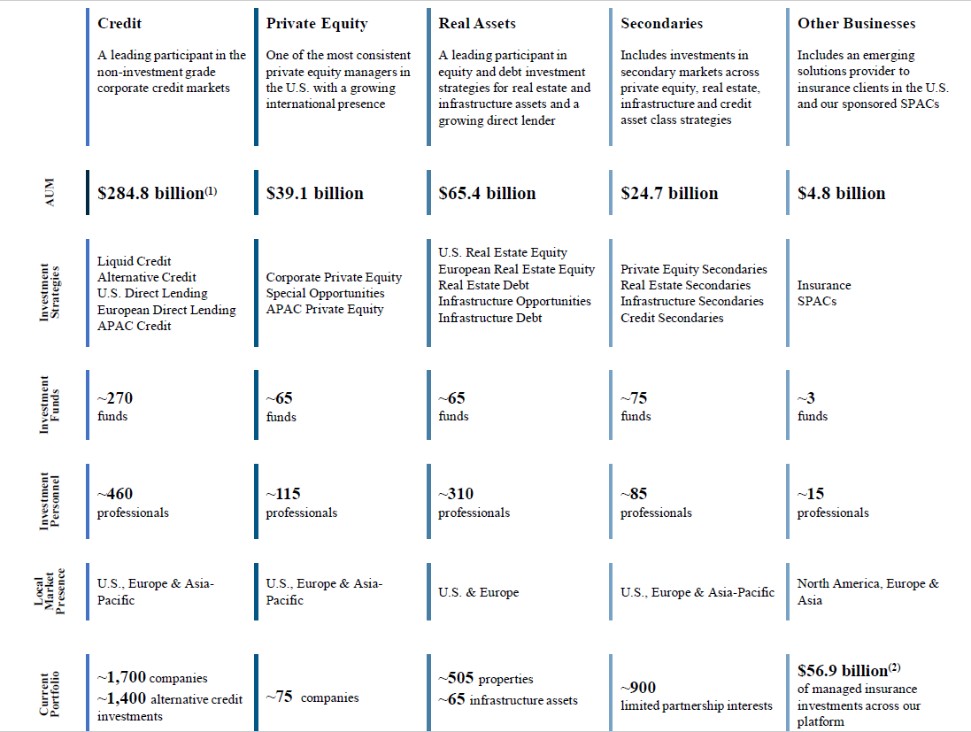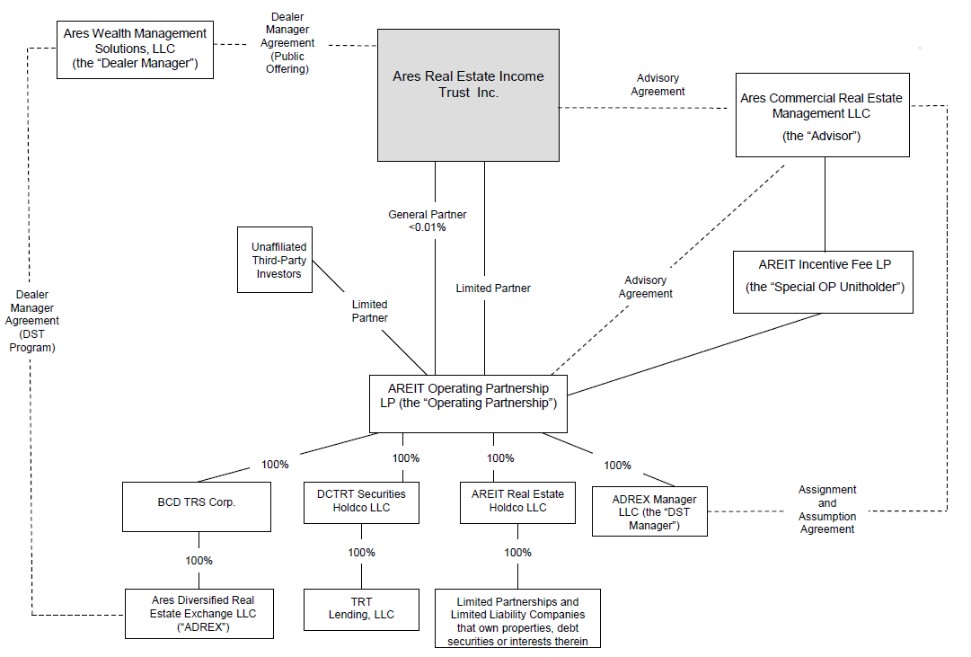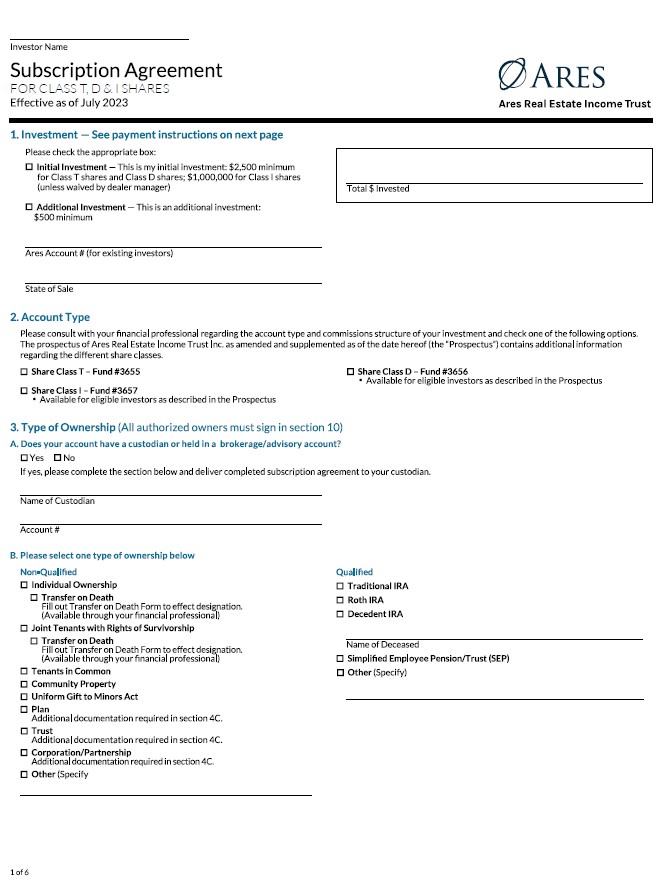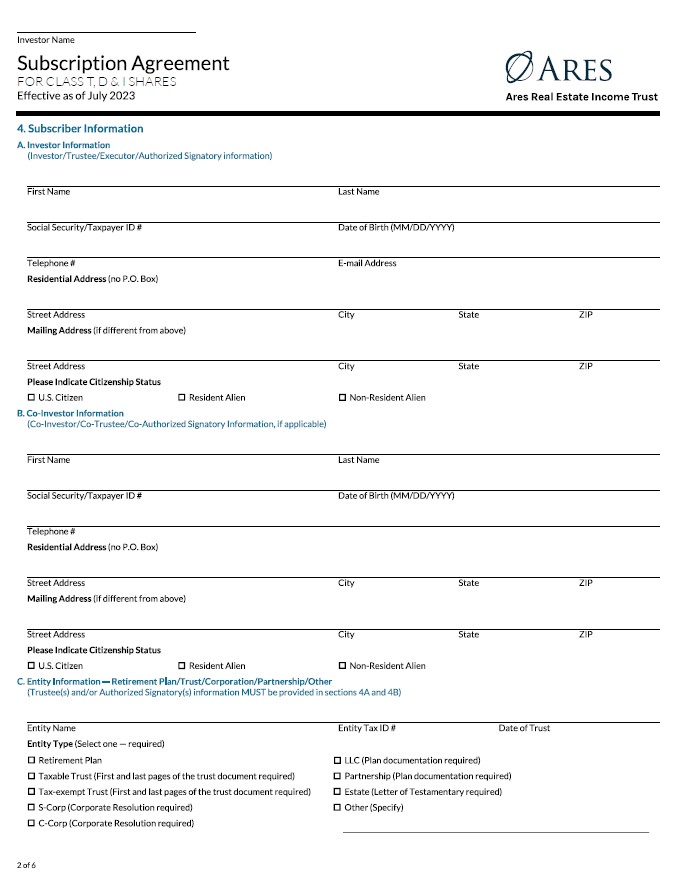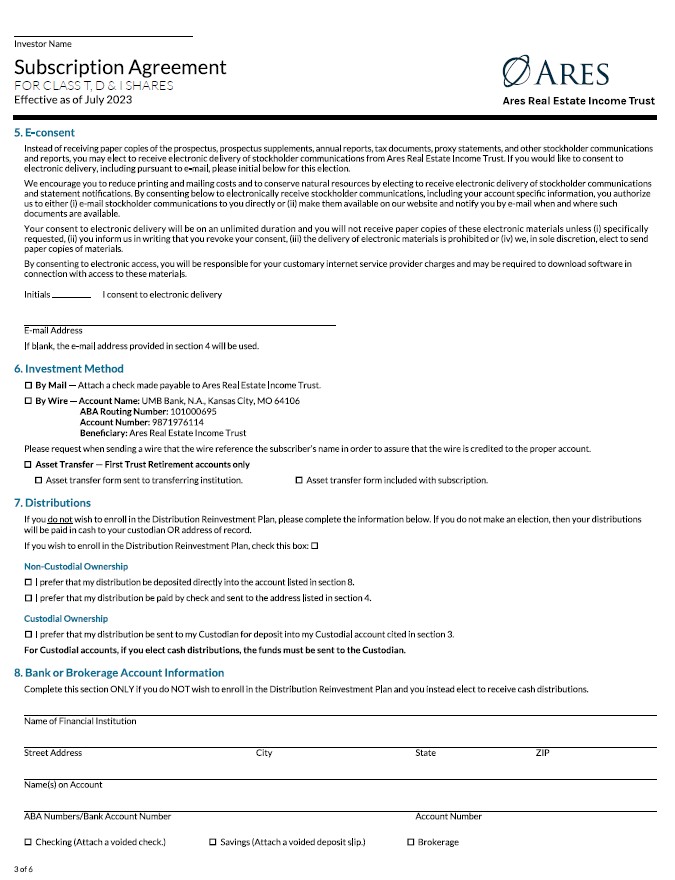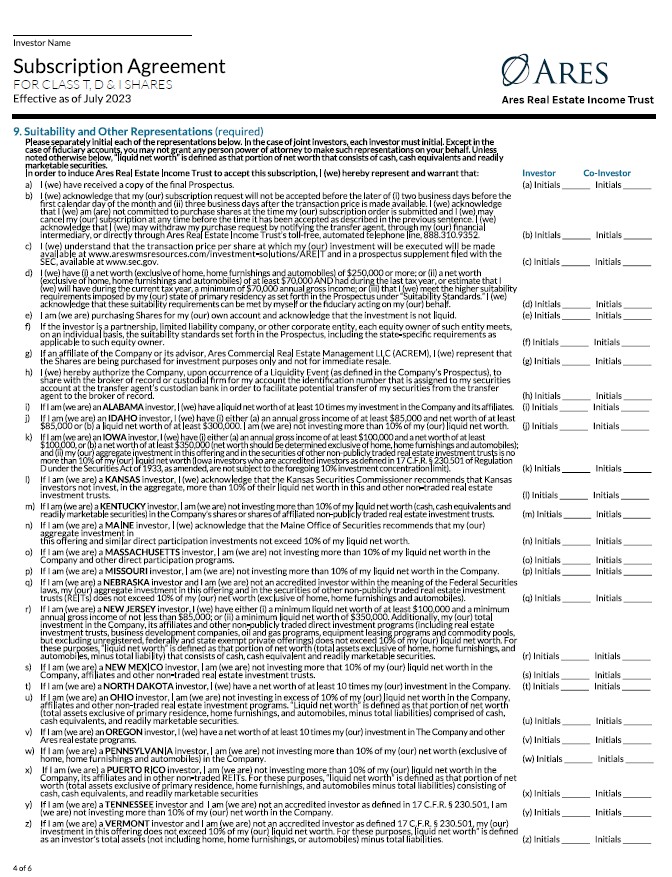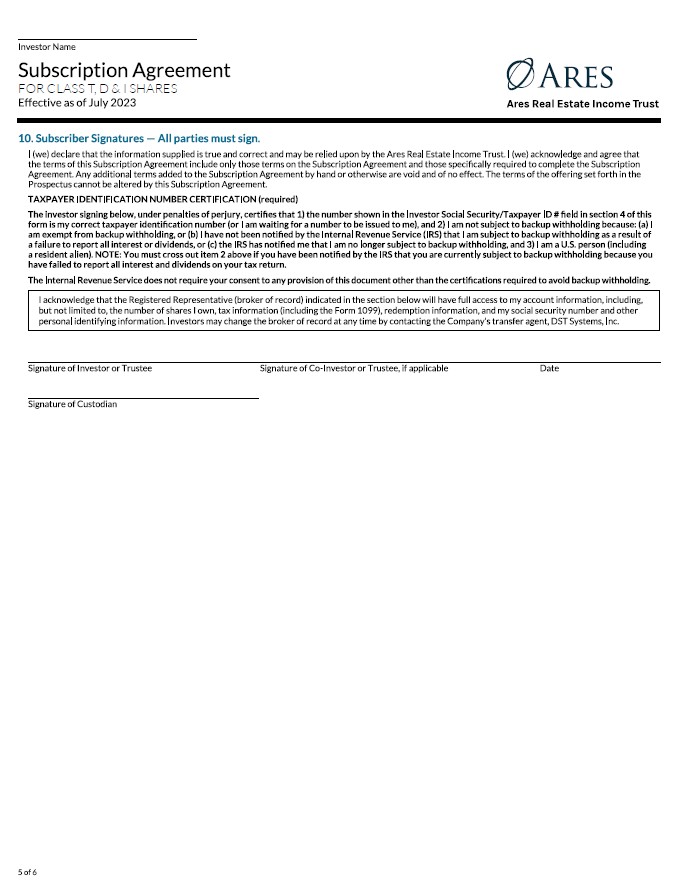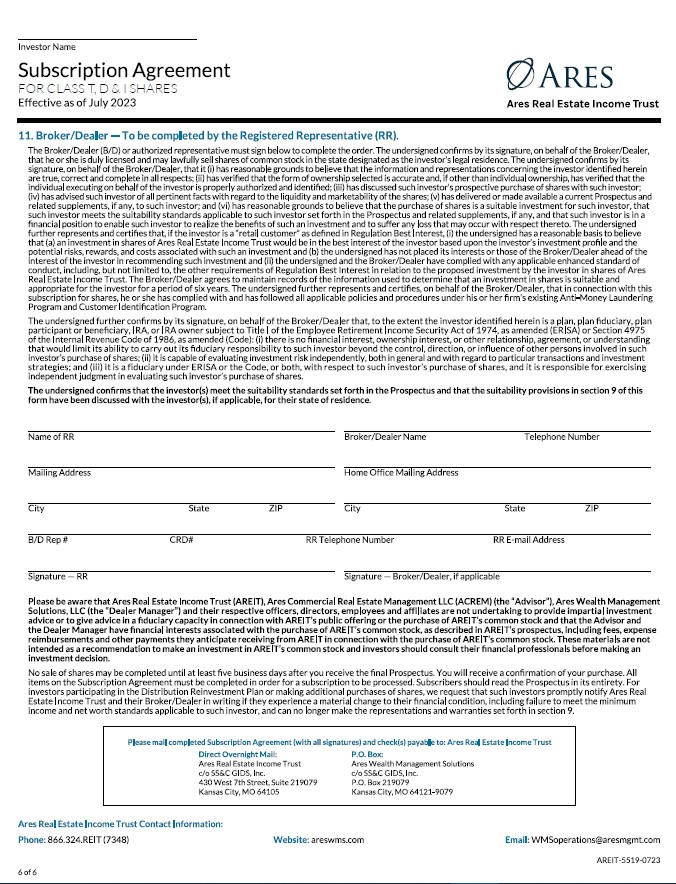We are highly dependent on the information systems of Ares and systems failures could significantly disrupt our business, which may, in turn, negatively affect our operating results and our ability to pay distributions.
Our business is highly dependent on communications and information systems of Ares. Any failure or interruption of Ares’ systems could cause delays or other problems in our business, which could have a material adverse effect on our operating results and negatively affect our ability to pay distributions to our stockholders.
Ares’ information systems and technology may not continue to be able to accommodate the growth of our business, and the cost of maintaining the information systems and technology, which is partially allocated to us pursuant to the Advisory Agreement, may increase from its current level. Such a failure to accommodate growth, or an increase in costs related to the information systems and technology, could have a material adverse effect on our business and results of operations.
Furthermore, a disaster or a disruption in the infrastructure that supports our business, including a disruption involving electronic communications, human resources systems or other services used by us, our Advisor, Ares or third parties with whom we conduct business, could have a material adverse effect on our ability to continue to operate our business without interruption. Although Ares has disaster recovery programs in place, these may not be sufficient to mitigate the harm that may result from such a disaster or disruption. In addition, insurance and other safeguards might only partially reimburse us for any losses as a result of such a disaster or disruption, if at all.
We, our Advisor and Ares also rely on third-party service providers for certain aspects of our respective businesses, including for certain information systems, technology and administration of our loan portfolio and compliance matters. Any interruption or deterioration in the performance of these third parties or failures or vulnerabilities of their information systems or technology could impair the quality of our operations and could impact our reputation and adversely affect our business.
Terrorist attacks and other acts of violence, civilian unrest, military conflict or war may affect the markets in which we operate, our operations and our profitability.
Terrorist attacks and other acts of violence, civilian unrest, military conflict or war may negatively affect our operations and your investment. We may acquire real estate assets located in areas that are susceptible to attack. In addition, any kind of terrorist activity or violent criminal acts, including terrorist acts against public institutions or buildings or modes of public transportation (including airlines, trains or buses) could have a negative effect on our business. These events may directly impact the value of our assets through damage, destruction, loss or increased security costs. Although we may obtain terrorism insurance, we may not be able to obtain sufficient coverage to fund any losses we may incur. Risks associated with potential acts of terrorism could sharply increase the premiums we pay for coverage against property and casualty claims. Further, certain losses resulting from these types of events are uninsurable or not insurable at reasonable costs.
More generally, any terrorist attack, other act of violence or war, including military conflicts, such as the ongoing conflicts between Russia and Ukraine and Israel and Hamas, could result in increased volatility in, or damage to, the worldwide financial markets and economy. Increased economic volatility and trade restrictions could adversely affect our customers’ ability to pay rent on their leases or our ability to borrow money or issue capital stock at acceptable prices and have a material adverse effect on our financial condition, results of operations and ability to pay distributions to you.
We depend on our Advisor and its key personnel; if any of such key personnel were to cease employment with our Advisor, our business could suffer.
Our ability to make distributions and achieve our investment objectives is dependent upon the performance of the Advisor in the acquisition, disposition and management of real properties and debt-related investments, the selection of customers for our real properties, the determination of any financing arrangements and other factors. In addition, our success depends to a significant degree upon the continued contributions of certain of the Advisor’s key personnel, including William S. Benjamin, Michael J. Blum, David M. Fazekas, Jay W. Glaubach, Marshall P. Hayes, Andrew E. Holm, Howard C. Huang, Andrea L. Karp, Dwight L. Merriman III, Lainie P. Minnick, Taylor M. Paul, Scott W. Recknor, David A. Roth, Julie B. Solomon, Jeffrey W. Taylor, and Joshua J. Widoff, each of whom would be difficult to replace. We currently do not have, nor do we expect to obtain key man life insurance on any of the Advisor’s key personnel. If the Advisor were to lose the benefit of the experience, efforts and abilities of one or more of these individuals, our operating results and NAV could suffer.
Our board of directors determines our major policies and operations, which increases the uncertainties faced by our stockholders.
Our board of directors determines our major policies, including our policies regarding acquisitions, dispositions, financing, growth, REIT qualification, redemptions and distributions. Our board of directors may amend or revise these and other policies without a vote of the stockholders. Under the Maryland General Corporation Law and our charter, our stockholders have a right to vote only on

